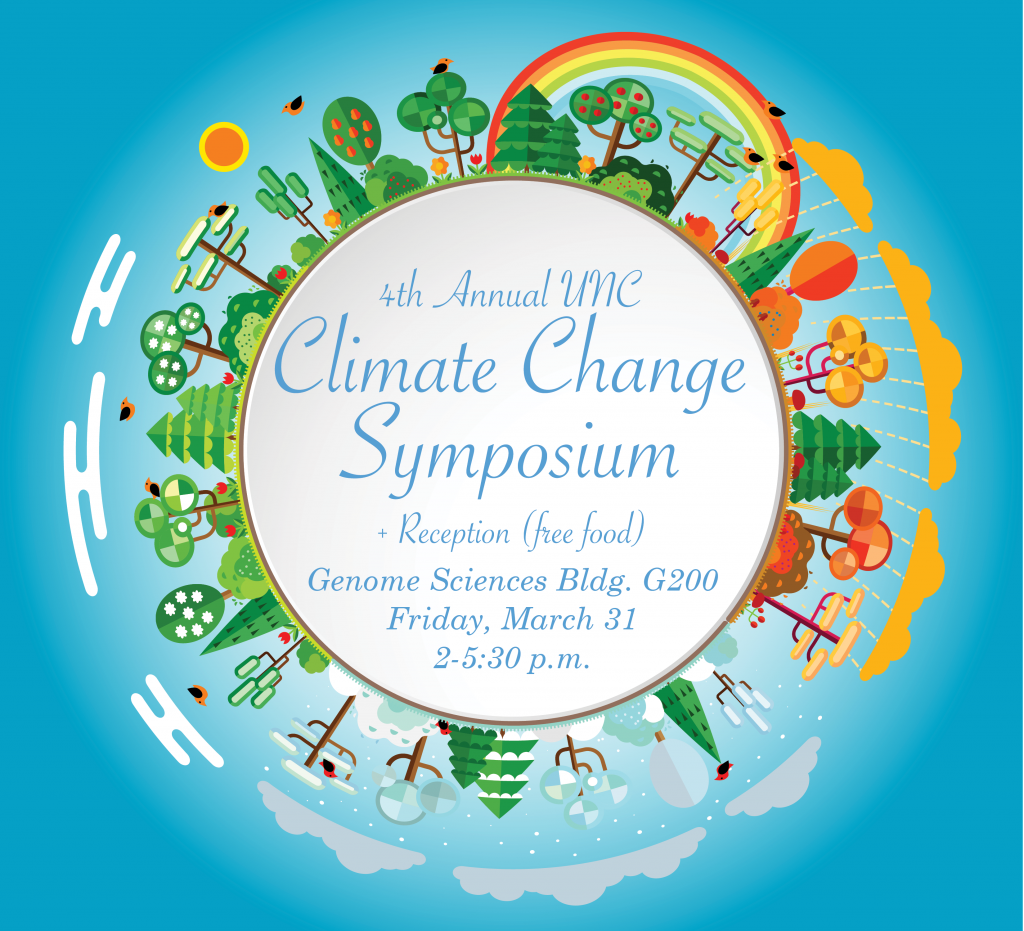Area experts share perspectives on climate change post-election
April 30, 2017
In today’s heated and polarized political climate and a new presidential administration creating uncertainty, the 4th annual Climate Change Symposium convened four experts from the Triangle-region to discuss their perspectives on what a new presidency could mean for climate change on Mar. 30.
Victor Flatt, a distinguished professor at the UNC Center for Climate, Energy, Environment and Economics, kicked-off the discussion by outlining the current international stance on climate change. Flatt projected that while the United States has yet to pull out of the recently established Paris Climate Agreement, time will tell as to how the country fits into the international arena of climate change policy.
“So the big question will be, what will Trump do,” Flatt said.
Many countries have already pledged to continue on the path to lessening greenhouse gasses, with or without the U.S., and the combined force of economics and technology will be the determinant driver of how America will combat climate change, Flatt explained.
Tim Profeta, director of the Nicolas Institute for Environmental Policy Solutions at Duke University, highlighted the current state of environmental policy in America and what the future of climate change mitigation in the country will be under an anthropogenic climate skeptic President Trump. With the Clean Power Plan scrapped the day before the symposium, Profeta reiterated Flatt’s sentiment no one knows how far the country will regress in its climate change policy.
Sara Peach, a previous professor at UNC’s School of Media and Journalism and current associate editor at Yale Climate Connections, said she sees two disasters ahead for the world: the planetary crises of climate change and the crises of drastically decreasing journalists. The solution for these crises, she said, will be a call for specialized journalists. With the public instilling their beliefs in scientists, it will take those with backgrounds in science to come forth and present the current state of the world to the public through journalism. Science communications will be of upmost importance in the coming years, she explained.
Following Peach’s discussion on journalists’ role in climate change mitigation, Jason West, associate professor in Environmental Sciences and Engineering at UNC, opened with a joke but finished with a profound message.
“My ability to manufacture and manipulate data has made my career,” he said to a laughing audience.
While this idea seems absurd to many, he said, science is currently under attack by politicians from around the country. While something once so pivotal to the growth of our country, now science is being criticized and denied based purely on unfounded political statements. To counter this, West said scientists must do more than research—they will have to step outside of the lab and speak to the public to establish trust between citizens and scientists.
Following the panel, guests spent time speaking to UNC students about their research and voted on their favorite poster.
Colleen Bove took first place with her poster titled, “Acidification and warming impair calcification and survivorship of Caribbean corals.” Justin Baumann’s “Century scale decline in coral growth rates in Belize- is climate the culprit?” took second place. Alexander Smith won third place with his poster, “Observing fluctuating topography in the Coastal Studies Institutes’ microtidal marsh in northeastern North Carolina.”
The event was sponsored by Carolina Climate Change Scientist, Carolina Seminars Program and the UNC Institute for the Environment.
